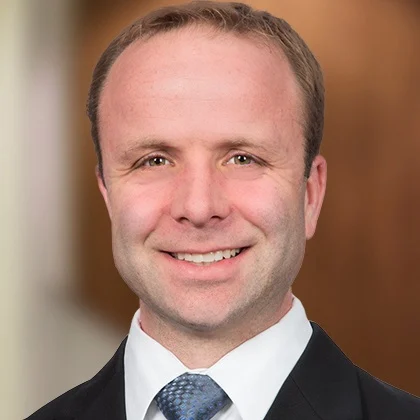Dan Young co-chairs Wolf Greenfield’s Washington, DC office and is a shareholder in the firm’s Biotechnology Practice. Dan provides strategic intellectual property counsel to life sciences companies, research institutions, and investors, and is recognized for developing creative solutions to complex patent issues. He partners with clients to develop and maintain patent portfolios covering biologics and small molecules, and to align patent and regulatory strategies to establish strong exclusivity positions around clinical programs. Dan has extensive experience defending and conducting due diligence analyses, devising and implementing worldwide third-party patent risk management strategies, and addressing IP issues in transactional matters. He advises companies on patent strategy in relation to private placements, public offerings, debt financings, and mergers and acquisitions.
Dan frequently provides strategic counsel to company leadership teams on business decisions involving intellectual property. He provides executive team members and in-house counsel with insights to help them effectively communicate regarding intellectual property matters with company stakeholders, board members, science teams, shareholders, and others. Dan also counsels businesses on resource allocation, planning, and monitoring budgets in relation to complex patent portfolios, including triaging inventions, aligning patenting efforts with evolving clinical research and development priorities and other business concerns, and developing and managing foreign filing programs. In conducting patent portfolio audits, Dan identifies and addresses blind spots for companies, helping them hit near and long-term business objectives involving intellectual property.

Recent Articles by Daniel Young
On its face, the new guidance seems to urge examiners to develop well-reasoned, substantive rejections rather than conclusory rejections which provide little basis for applicants to advance applications toward allowance, particularly in the complex areas of vaccines, diagnostics, methods of treatment, and screening for genetic alterations, where the new examples are focused. Furthermore, compared with prior guidance, the new examples include more claims that are considered patent eligible subject matter. Some observers believe this may be an effort by the patent office to dispel hesitation that examiners have apparently had in drawing conclusions of patent eligibility when examining claims.


![[IPWatchdog Logo]](https://ipwatchdog.com/wp-content/themes/IPWatchdog%20-%202023/assets/images/temp/logo-small@2x.png)


